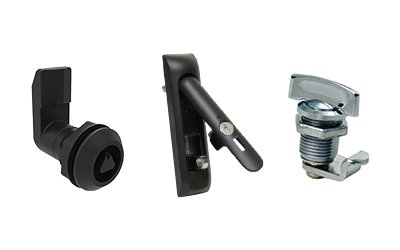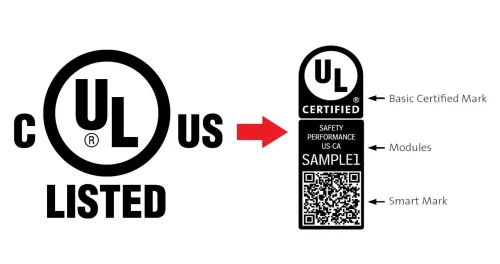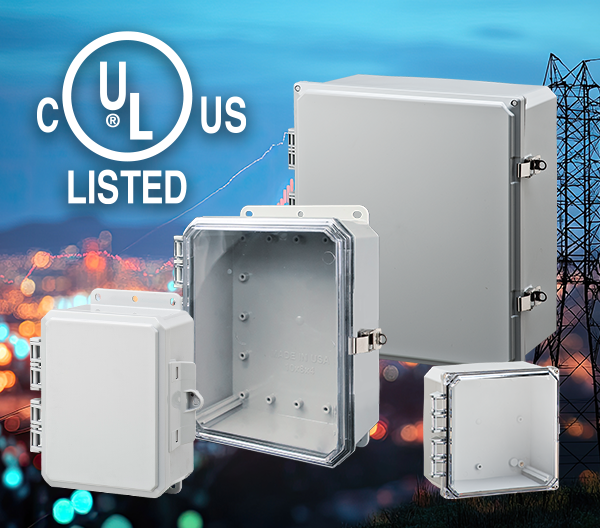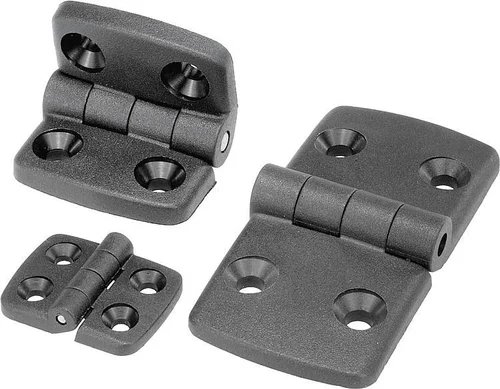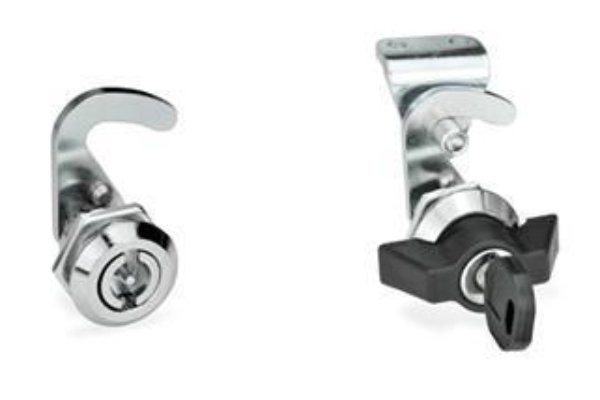If you’re a business buyer looking for electrical cabinet latches, you’ve probably heard about UL and CE certifications. These terms might sound confusing, but they’re super important. They tell you that the latches you’re buying are safe and meet certain rules. In this article, we’ll explain what UL and CE certifications mean, why they matter for electrical cabinet latches, and how they help your business. We’ll keep it simple so anyone can understand, even if you’re new to this stuff. Let’s dive in!
What Are Electrical Cabinet Latches?
First, let’s talk about what electrical cabinet latches do. These are small but strong parts that keep electrical cabinets closed. An electrical cabinet is like a metal box that holds wires, switches, and other electrical stuff. The latch makes sure the door stays shut so nothing dangerous—like water, dust, or curious hands—gets inside. If the latch isn’t good, the cabinet might not protect the equipment, and that could cause big problems like fires or broken machines.
Businesses use these cabinets in factories, offices, and even outdoors. So, the latches need to be tough and safe. That’s where UL and CE certifications come in—they’re like a promise that the latches will do their job well.
What Is UL Certification?
UL stands for Underwriters Laboratories. It’s a company in the United States that’s been around for over 100 years. They test all kinds of products to make sure they’re safe. When a latch gets a UL certification, it means it passed tough tests for things like fire safety and water protection.
For electrical cabinet latches, UL checks if they can keep the cabinet sealed tight. They might spray water on the latch or try to break it to see if it holds up. If it passes, the latch gets a UL mark. This mark tells you it’s safe to use in the U.S. and Canada.
There are two types of UL marks you might see:
- UL Listed: This is for the whole product, like a finished latch ready to use.
- UL Recognized: This is for parts that go into a bigger product, like a latch that’s part of a cabinet.
For B2B buyers, UL certification is a big deal because it means the latch won’t fail and cause trouble. It’s also something insurance companies and customers might ask for. You can learn more about UL from their official site: UL Solutions.
What Is CE Certification?
CE stands for Conformité Européene, which is French for “European Conformity.” It’s a mark that shows a product follows safety rules in Europe. If you’re selling or using latches in countries like Germany, France, or Spain, they need this CE mark.
Unlike UL, which is optional in the U.S., CE is a must in Europe. The company making the latch has to test it and prove it’s safe for things like electrical shocks or bad weather. For cabinet latches, this might mean checking if they keep water out or stay strong in the cold.
The CE mark doesn’t come from one group like UL. Instead, the maker tests the product themselves or hires a lab, then puts the mark on it. This makes it a bit different, but it’s still a sign of quality. Check out more about CE on the European Commission’s site: CE Marking.
Why Do These Certifications Matter for Latches?
Now you might wonder, “Why should I care about UL and CE for latches?” Here’s why they’re important for B2B buyers like you:
1. Safety First
Electrical cabinets hold dangerous stuff—wires with electricity running through them. If a latch fails, water or dust could get in and cause a short circuit. That could start a fire or shock someone. UL and CE tests make sure the latch keeps the cabinet safe, so your workers and equipment stay protected.
2. Following the Rules
In the U.S., UL isn’t required by law, but many customers and insurance companies want it. In Europe, CE is the law—you can’t sell without it. If your business works in both places, getting latches with both certifications saves you headaches. It means your products follow the rules everywhere.
3. Happy Customers
When you buy certified latches, you’re telling your customers, “We care about quality.” Big companies—like factories or stores—often ask for UL or CE because they don’t want cheap, risky parts. Certified latches make your business look professional and trustworthy.
4. Saving Money Later
Cheap latches without certifications might break fast. Then you’d have to replace them or fix damaged cabinets. Certified latches last longer and work better, so you spend less on repairs. It’s like buying good shoes—they cost more upfront but save you money over time.
How Are Latches Tested for UL and CE?
Let’s peek at how these certifications happen. It’s like a big science experiment to make sure latches are tough.
UL Testing
UL has strict tests for latches. Here are some examples:
- Water Test: They spray water at the latch to see if it leaks. This checks if it can keep a cabinet dry in the rain.
- Salt Spray Test: They put the latch in salty air for days to see if it rusts. This is important for outdoor cabinets.
- Strength Test: They pull or push the latch hard to make sure it doesn’t break.
If the latch passes, it gets a rating like “Type 4X,” which means it’s super good at keeping out water and dust. You can read more about UL tests here: UL Enclosure Testing.
CE Testing
For CE, the maker does the tests, but they follow Europe’s rules. They might:
- Check if the latch stops water or dust.
- Test it in hot or cold weather to see if it still works.
- Make sure it’s strong enough to stay closed.
After testing, they write a report and add the CE mark. It’s a bit like doing your own homework but following the teacher’s rules.
UL vs. CE: What’s the Difference?
UL and CE sound similar, but they’re not the same. Here’s a quick look at how they’re different:
| Feature | UL Certification | CE Certification |
|---|---|---|
| Where It’s Used | Mostly U.S. and Canada | Europe (EEA countries) |
| Required? | Optional, but often wanted | Must have to sell in Europe |
| Who Tests? | UL does the testing | Maker tests it themselves |
| Mark Looks Like | “UL” in a circle | “CE” letters |
For B2B buyers, this means you might need both if you sell in the U.S. and Europe. Some latches come with both certifications, which is handy!
Types of Latches and Certifications
Not all latches are the same. Here are some common types for electrical cabinets and how certifications apply:
1. Quarter-Turn Latches
These twist a quarter turn to lock. They’re fast and easy. UL might test them for water protection, and CE checks if they’re strong.
2. Compression Latches
These press tight to seal the door. They’re great for keeping dust out. Both UL and CE test how well they seal.
3. Handles with Locks
These have a key or code to open. They’re extra safe for important cabinets. Certifications make sure the lock doesn’t fail.
Each type gets tested differently, but the goal is the same: safety and strength. You can see examples of certified latches at SPEP Hardware.
How to Choose Certified Latches as a B2B Buyer
Picking the right latches can feel tricky, but it’s easier with a plan. Here’s how to do it:
Step 1: Know Your Needs
Ask yourself:
- Where will the cabinet go? Inside or outside?
- Does it need to stop water, dust, or both?
- Do you sell in the U.S., Europe, or both?
If it’s outdoors, look for latches with high ratings like UL Type 4X or IP66 (a CE rating for water and dust).
Step 2: Check Certifications
Look at the latch’s label or paperwork. Does it say UL Listed or CE? Ask the seller for proof, like a test report. Good suppliers, like Polycase, show this info clearly.
Step 3: Think About Quality
Certified latches cost more, but they’re worth it. Cheap ones might not have certifications and could break. Pick a trusted brand with good reviews.
Step 4: Talk to Suppliers
Call or email the seller. Ask:
- “Is this latch UL or CE certified?”
- “What tests did it pass?”
- “Can you send me the certificate?”
A good supplier will help you fast. If they dodge your questions, look somewhere else.
Benefits for Your Business
Buying UL and CE certified latches does more than just keep things safe. Here’s how it helps your business grow:
1. Sell Anywhere
With both certifications, you can sell in the U.S., Canada, and Europe without extra work. That’s more customers for you!
2. Avoid Trouble
If a latch fails and hurts someone, you could get sued. Certified latches lower that risk because they’re proven safe.
3. Build Trust
Customers love seeing UL and CE marks. It shows you’re serious about quality. That can win you bigger deals.
4. Stay Ahead
Competitors with uncertified latches might lose customers. You’ll look better with certified products.
Common Questions B2B Buyers Ask
Here are some questions you might have, answered simply:
Do I Need Both UL and CE?
If you only sell in the U.S., UL is enough. For Europe, you need CE. If you sell in both, get latches with both.
Are Certified Latches More Expensive?
Yes, a little. Testing costs money, so certified latches might cost more. But they save you cash by lasting longer.
Can I Trust the Certifications?
Most of the time, yes. UL is super strict, and CE rules are clear. Just make sure the seller isn’t faking it—ask for proof.
What If My Latch Isn’t Certified?
You can still use it in the U.S., but some customers won’t buy it. In Europe, you can’t sell it legally without CE.
Real-Life Example
Imagine you run a factory making machines. You need latches for cabinets that go outside. You pick a cheap latch with no certification. One day, it rains, and water gets in. The machine breaks, and you lose $10,000 fixing it. If you’d bought a UL Type 4X latch, it would’ve stayed dry, and you’d save that money. Certifications matter!
Where to Buy Certified Latches
Ready to get some? Here are places to start:
- UL Solutions: Check their database for certified products: Product iQ.
- SPEP: They sell latches with UL ratings: SPEP.
- Polycase: Great for cabinets and latches: Polycase.
Ask for samples or quotes to find the best deal.
Final Thoughts
UL and CE certifications for electrical cabinet latches aren’t just fancy stickers—they’re your ticket to safety, trust, and bigger sales. As a B2B buyer, picking certified latches means fewer worries and happier customers. Whether you need them for the U.S., Europe, or both, these marks show you’re serious about quality. Take your time, check the certifications, and choose wisely. Your business will thank you!
Got questions? Reach out to suppliers or check the links above. You’re on your way to smarter buying!

